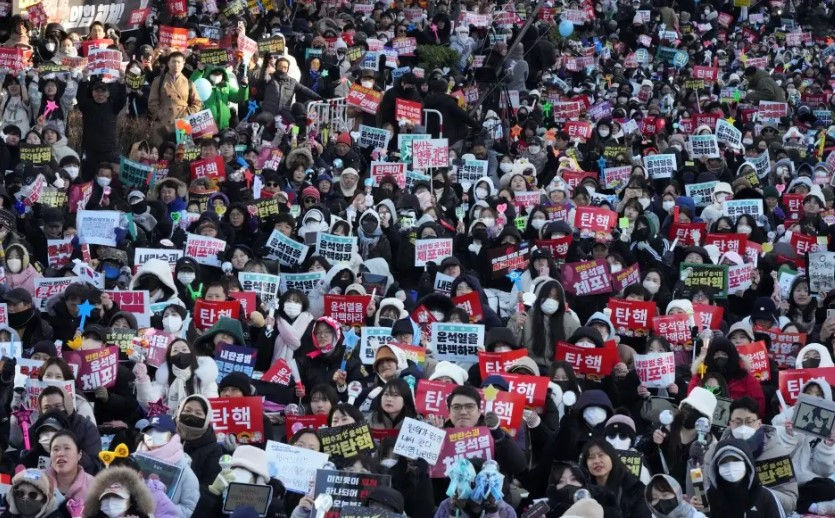The NFL is removing 'End Racism' from its Super Bowl end zone
- Wonjeong Hong
- Mar 3
- 2 min read
Source
Article Summary
NFL’s ‘End Racism’ slogan, which began back in 2020 as the protest after the death of George Floyd, has disappeared from the NFL Super Bowl end zone for the first time; coincidentally, in the first year that Trump came back to the Whitehouse and banned the DEI (Diversity, Equity, and Inclusion) policy. Following Trump’s anti-DEI initiatives, powerful companies, such as Amazon and Meta, are rolling back their DEI policies.
The NFL denied the assumption that it is following the trail of Trump and a big tech company’s DEI rollback. The league commissioner also announced that it is planning to continue its DEI initiatives, unrelated to Donald Trump’s DEI ban. Besides the DEI initiatives, Trump’s inauguration affected significant newsrooms around the company to settle the lawsuits against Trump.
Some Democrats are worried that many organizations and civic institutions are softening their attitudes toward Trump. The historian Timothy Snyder called it “anticipatory obedience.” He talked about how most of the power of authoritarianism is freely given, and most of the citizens offer what repressive government would work before even being asked.
Ezra Kein, a New York Times columnist, asserts that Trump’s blizzard of executive answers is intended to impress the public. However, Ezra points out that the administration's limit paradoxically shows that many orders face sloppy rollouts, opposition from the court, and word leaders.
Reflection
After reading this article, I realized that institutions can still obey authority without officially acknowledging it. This “anticipatory obedience” steadily affects and shapes society without revealing its form. The disappearance of the NFL’s ‘End Racism’ slogan is one of those experiences mentioned in the article. Another example is the rollback of DEI policies of great tech companies such as Google, Meta, Amazon, and McDonald’s.
The danger of anticipatory obedience is that people start giving what the administration and authority did not initially aim to take from them. Through anticipatory obedience, people come to ‘expect’ what the government wants, indirectly empowering them.
One frustrating aspect of this problem is that it is often spread indirectly, making it difficult to stop or improve the situation. Anticipatory obedience permeates the regulation and traditional rule, making it more challenging to remove it. It tends to stay there.
The easiest way to prevent or stop anticipatory obedience is not to make the overpowered authority that gives indirect pressures or burdens about how organization, group, and citizens should behave and do the specific actions or policies like. Although there might be an inevitable implicit code that is different by the period of each government, the situation where all the big corporations should suddenly change the cultural and social policies they have maintained for an extended period should be prohibited.




Comments